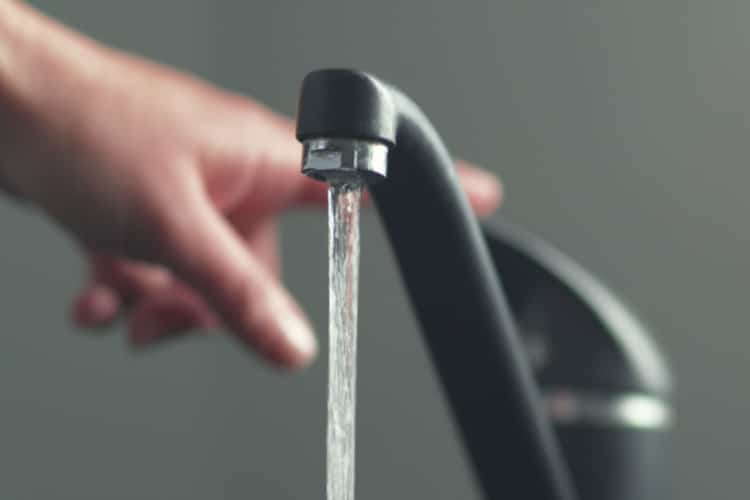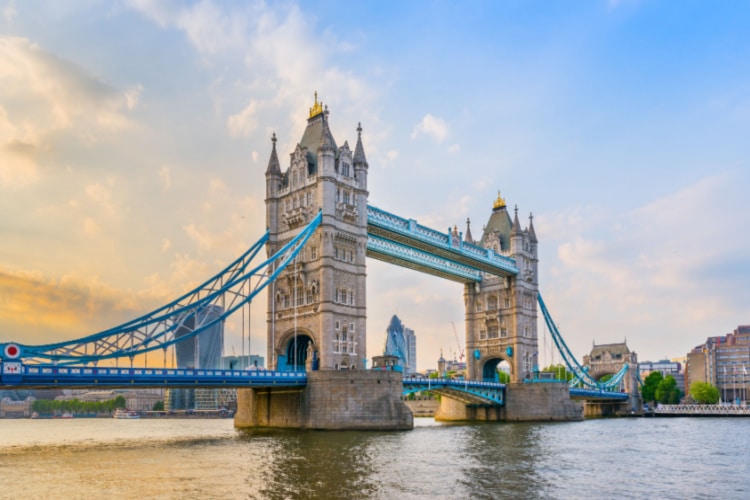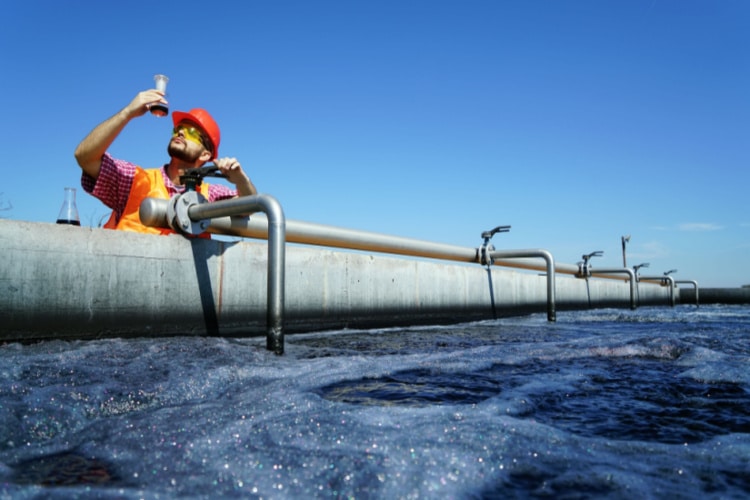When traveling worldwide, many tourists want to know whether the tap water at their destination is safe for their consumption. Fortunately, the tap water in London is highly-rated compared to other major cities and is safe to drink.
This article will act as a tap water guide for London and go over the specifics of London’s water system, with tips travelers and residents alike will want to know.

London Water Quality Report: What Is in the Water?
Municipal water in London is clean and plentiful. It consistently adheres to UK standards for safe drinking water. London water does not cause bacterial illnesses that arise in many other parts of the world, and locals and tourists can feel confident about drinking it.
Compared to water systems in other major global cities, London’s water contains fewer contaminants. However, engineers note that lead pipes are still in use in parts of the city, particularly in buildings constructed before 1970 when the UK government outlawed this metal in plumbing.
People who own and live in older buildings should be aware of the possibility of contamination and take steps to replace the pipes with safer alternatives.
Environmentalists also draw attention to the presence of microplastics in the London municipal water supply. These poorly understood contaminants come from many consumer items and industrial sources.
Other substances in the water include chlorine derivatives to safeguard the public from dangerous bacteria. While not every resident or visitor enjoys the taste of chlorine in their drinking water, its presence in small amounts is safe.
As of summer 2022, London water systems have yet to add fluoride to the water. A nationwide push is underway in the UK to put a small amount of fluoride in tap water to protect children against tooth decay.
Is the Water Hard or Soft?
London water is generally hard, though hardness varies significantly by location within the metropolitan area. Chalk and limestone are the most common underground materials that cause hard water in London.
Water filtered through limestone and other mineral deposits contain magnesium and calcium carbonates as well as sulfates and bicarbonates.
Hard water is completely safe to drink, but some London residents and visitors do not like the taste and appearance. In extreme cases, hard water can cause visible white flakes of minerals in beverages and ice cubes.
It can clog coffee makers and cause buildup in electric kettles. Hard water can also cause dry skin when used for bathing.
Many residents use charcoal filter pitchers to reduce the taste and properties of hard water to make it more pleasant to drink. Private companies sell at-home water softening systems.
Where London Gets Its Water From
70% of London’s tap water comes from reservoirs upstream of the Thames River. Water also comes from the Thames and Lee Rivers and local underground sources in the water table.
The 320 water reservoirs serving London are located in suburban areas and underground. Local regulations protect these reservoirs from recreational uses like swimming, though fishing is allowed in many areas.

Several municipal water companies serve the London metropolitan area. Some of the larger companies include:
- Affinity Water
- Essex and Suffolk Water
- Sutton and East Surrey Water
- Thames Water
Affinity Water covers the outer parts of the London suburbs on the north, east, and west sides. Essex and Suffolk Water is responsible for the named counties.
Sutton and East Surrey Water serve the suburbs north of the city center. Thames Water is the largest water treatment company in the area, covering 76% of the London population in urban areas.
How Tap Water Is Treated in London
London treatment plants removes dangerous contaminants from groundwater and water reservoirs before distributing the water to homes and businesses. The city has 18 treatment plants run by the four regional water authorities.

Notable water treatment plants include the Thames Water Desalination Plant, which opened in 2010. It pulls salty water from the estuary and processes it into fresh water.
The plant also runs on renewable energy sources, giving it an advantage where costs and environmental impact are concerned.
Other London-area water treatment plants use chlorine and unique filtration methods to produce a safe, drinkable hydration source. For example, the Walton Water Treatment Works uses a combination of ozonation, sand filtration, activated carbon filtration, the addition of chlorine, and other methods to produce clean water.
Wastewater is processed by separate treatment plants in the London metro area, removing as much chemical and bacterial contamination as possible before allowing the water to return to the rivers and eventually to the ocean.
Do They Have the Cleanest Tap Water?
According to 2021 rankings by the international organization TapSafe, London tap water is rated the 22nd best among the world’s major cities. While the water is hard in most areas, it is mainly free of contamination and safe for cooking, drinking, and bathing.
While the water in London is clean, residents and visitors often prefer the taste of tap water in regions such as Scotland, where fewer minerals and contaminants exist.
Conclusion
While London’s public tap water is clean, safe, and well-regarded, many people do not prefer hard drinking water. Personal or home filtration may be necessary to produce pleasantly flavored water that is on par with a bottled product.
Difficulties with certain appliances may also result from the hardness of the water, but easy methods are available to clean most of these appliances without damage.
If you choose to drink London tap water, you will not damage your health or that of your family. As London improves its water filtration systems, its rankings will continue to rise compared to Europe and the rest of the world.
World travelers and residents can feel confident that they can drink tap water in london without negatively affecting their health.